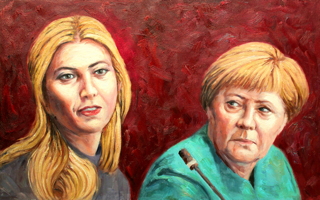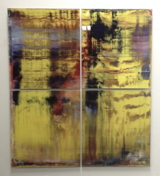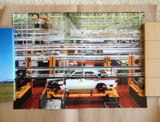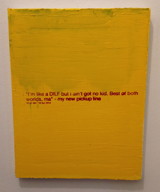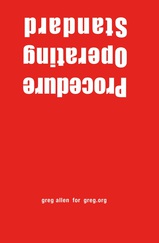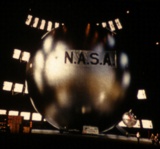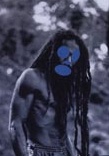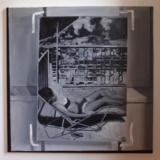Deborah Scranton got embedded reporter credentials, but her documentary, The War Tapes was largely shot by US soldiers in Iraq using camera equipment she provided. She did much of her directing remotely via IM and email reviews of Quicktime dailies. Here's 's a portion of 's discussion of a typical scene, where the troops guard a convoy of supplies being operated by Halliburton subsidiary KBR. The scene provides an indelible insight into the day-to-day situation the troops face, and the complexities that underlie every passing mention in the news about "IED's" and "convoys":
KBR sells the swag to the government (meals, haircuts, styrofoam plates for $20+ bucks a pop) and to the troops. There's a great scene of soldiers packed into KBR's amply stocked commissary after a hard day of escorting. They're there to buy DVDs, Pringles, Becks beer, and soft drinks from KBR. Suddenly, you realize that every copy of "Armageddon" and every bottle of Mountain Dew was trucked in through the same hellish corridor as the cheese.Citizen soldiers, citizen media: The War Tapes [majikthise via robotwisdom]"The War Tapes" doesn't tell us how the war is going, or speculate about the probability of success. Instead, it shows us how much blood and treasure is spent to deliver a single convoy of cheese to an American camp just a few miles outside of Baghdad. The implication is clear but unspoken: The Americans don't control the main roads around key bases. The fight to keep Camp Anaconda supplied is a war unto itself.
Two of the soldiers, Sgts Jack Bazzi and Stephen Pink, were on Fresh Air last Thursday [whyy.org]

